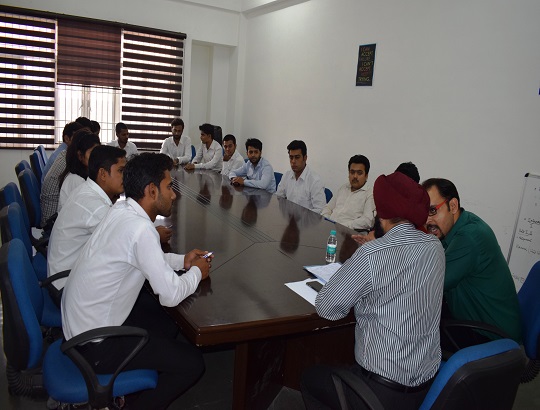Introduction In today’s highly competitive times, in order to prosper in life, students generally prefer to do a professional course.…
Tag
B Tech Subjects
Browsing
These are just some of the common subjects studied in B.Tech programs. The specific subjects may vary depending on the specialization chosen by the student and the curriculum of the university or institution offering the program.
The subjects studied in a B.Tech program can vary depending on the specialization or branch of engineering chosen by the student. However, there are some common core subjects that are typically included in most B.Tech programs regardless of specialization.
- Engineering Mathematics: This subject covers topics such as calculus, linear algebra, differential equations, probability, and statistics, which form the foundation for various engineering disciplines.
- Engineering Physics: This subject covers fundamental principles of physics relevant to engineering, including mechanics, thermodynamics, electromagnetism, and optics.
- Engineering Chemistry: This subject covers basic concepts of chemistry relevant to engineering, including atomic structure, chemical bonding, stoichiometry, acids and bases, and environmental chemistry.
- Engineering Mechanics: This subject deals with the study of statics and dynamics, including forces, moments, equilibrium, and motion of rigid bodies.
- Engineering Drawing and Graphics: This subject focuses on technical drawing and computer-aided design (CAD), teaching students how to represent and interpret engineering drawings and sketches.
- Basic Electrical Engineering: This subject covers fundamental concepts of electrical engineering, including circuit analysis, network theorems, electrical machines, power systems, and basic electronics.
- Basic Electronics: This subject covers the principles of electronic devices and circuits, semiconductor materials, diodes, transistors, amplifiers, and digital electronics.
- Computer Programming: This subject introduces students to programming languages such as C, C++, Java, or Python, and teaches fundamental programming concepts such as variables, control structures, functions, arrays, and pointers.
- Data Structures and Algorithms: This subject covers the study of data structures (e.g., arrays, linked lists, stacks, queues, trees, graphs) and algorithms (e.g., sorting, searching, recursion, dynamic programming) used in computer science and engineering.
- Digital Logic Design: This subject covers the design and analysis of digital circuits using Boolean algebra, logic gates, combinational and sequential circuits, flip-flops, registers, and counters.
- Signals and Systems: This subject deals with the analysis and processing of signals in both time and frequency domains, including continuous-time and discrete-time signals, systems, convolution, Fourier analysis, and Laplace transforms.
- Control Systems: This subject covers the principles of feedback control systems, including modeling, analysis, and design of control systems using techniques such as transfer functions, block diagrams, and feedback controllers.
- Electromagnetic Theory: This subject covers Maxwell’s equations, electromagnetic field theory, electromagnetic waves, transmission lines, waveguides, antennas, and electromagnetic interference.
- Microprocessors and Microcontrollers: This subject covers the architecture, programming, and interfacing of microprocessors and microcontrollers, including assembly language programming, memory interfacing, and input/output devices.
-
Engineering Economics and Management: This subject introduces students to economic principles, project management techniques, cost estimation, resource allocation, and decision-making in engineering projects.

